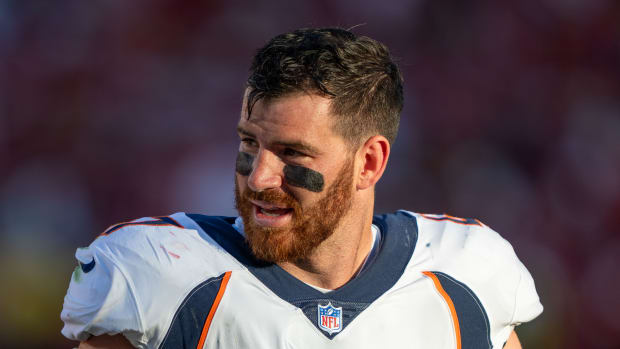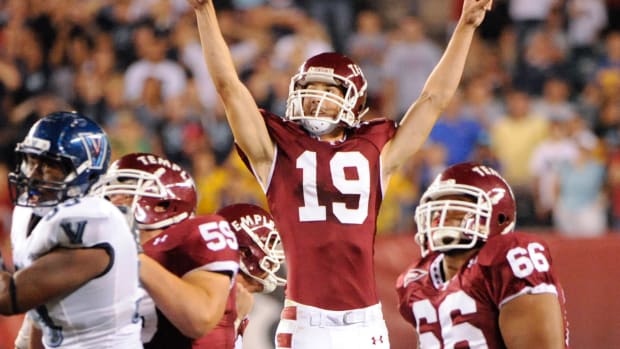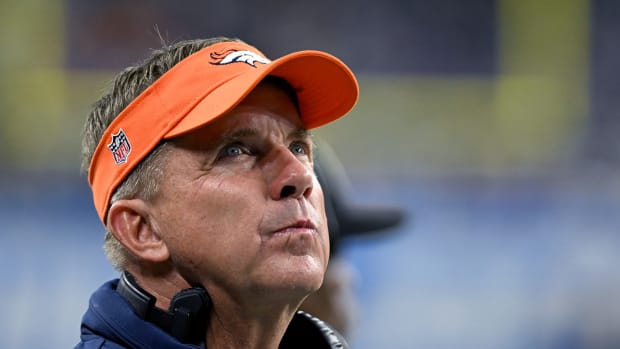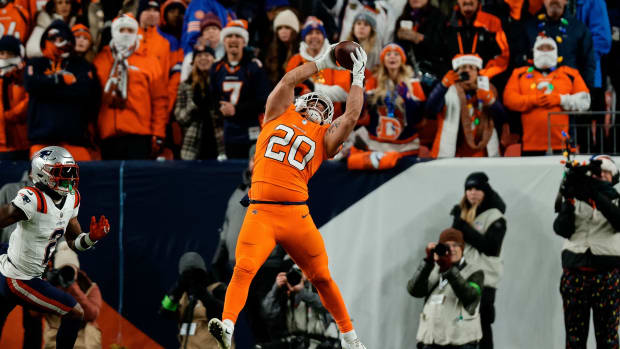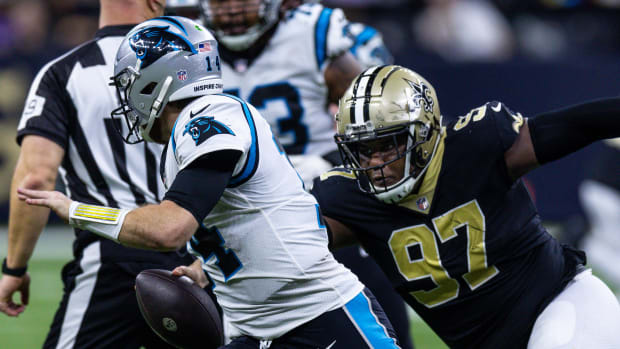Broncos' Big Roadblock to Getting Justin Simmons Extended Long-Term Before Deadline Revealed
Denver Broncos safety Justin Simmons is signing his franchise tag for $11.4 million, meaning he is at least locked into that salary for the 2020 season.
Simmons’ agent and the Broncos haven’t come to terms yet on a multi-year contract extension, though it’s possible that could happen before the July 15 deadline (this coming Wednesday). But that begs the question; why is Simmons signing his tag without agreeing to a new contract?
It’s not unusual for players who get the franchise tag to not sign new deals with their teams until days, even hours, before the deadline. That’s happened with every Broncos player who has received the tag and it’s the case with most other teams, too.
The only time in which a player always signs a contract long before the deadline is if the tagged player gets traded. In those cases, a new contract is part of the terms of the trade — teams who trade for tagged players before the deadline want to get a deal done, and the agents for those players want the same.
Looming Salary Cap Uncertainty is Causing Teams to Drag Their Heels
The most likely reason that Simmons has signed his tag now, instead of a long-term extension, is because of uncertainty about the salary cap in 2021 and future years and league revenues in 2020. Although the NFL plans to move forward with the regular season, as usual, reduced fan attendance because of COVID-19 is still expected.
If there is reduced attendance, that means fewer ticket sales if a team hasn’t sold out its season ticket commitments. Though the Broncos have sold out their season tickets dating back many years, even if the team opens up seating to all purchasers, some won't attend out of fear of contracting the virus. Reduced attendance would mean a drop in concessions and merchandise sales at the games.
If Denver follows the example of other teams and mandates a specifically reduced attendance capacity that is less than Empower Field at Mile High's usual 76,125, those season ticket holders who can't attend could either be refunded or credited toward 2021. Either way, a reduction in revenue is virtually guaranteed.
And for other teams who don’t sell out their season tickets, the revenue sharing in place means a lower total sum from in-person attendance. While revenue sources such as television deals should remain steady, other sources may not.
All of that means some uncertainty for every team — the Broncos included — about the future of the cap. Therefore, the Broncos may be uncertain about how to accommodate a contract extension for Simmons and are playing a 'wait and see' game.
Meanwhile, Simmons likely believes it’s best to lock himself into his salary, because he wants to stay with the team, and hope for the best in getting an extension down the road.
My Proposal: Amend the New CBA to Extend Franchise Tag Deadline
The NFL and NFLPA are negotiating contingency plans in case games are reduced or canceled because of the COVID-19 pandemic. Among those contingencies are protocols for what will happen with the salary cap in future seasons. But these negotiations are coming close to the deadline for franchise-tagged players to sign extensions.
I’m not sure why the NFL and NFLPA took so long to do this, but I don’t think Simmons and other players who have signed their franchise tags should be penalized for that delay, nor should their respective teams, when it comes to getting a new contract.
Therefore, I would propose that the NFL and NFLPA agree to another CBA amendment, to allow all players who have signed their franchise tags by the July 15 deadline to negotiate new deals with their teams, up until the start of the regular season.
Doing that would allow players and teams who have been negotiating in good faith, but weren’t certain what the future might hold for the salary cap, to continue negotiations and have the chance to reach agreement on a new contract.
If that doesn’t get codified, and the Broncos and Simmons don’t finalize a contract by July 15, I don’t think it necessarily leads to prices going up even more. The only player who has agreed to a significant contract extension since the draft is Patrick Mahomes and he plays the premium position to end all premium positions.
Safety isn’t a premium position — the only other safety under a franchise tag is Anthony Harris of the Minnesota Vikings — and if teams and players are uncertain about the future of the salary cap, then I don’t see a lot of safeties getting big contracts that re-set the market.
Bottom Line
I do hold some hope that the Broncos and Simmons will get a deal done, but this was an unusual offseason, in which few predicted back in January that a pandemic would leave so much uncertainty about the things we take for granted.
All that said, this is by no means an indictment of the Broncos front office, nor of Simmons’ agent. It’s simply unfortunate circumstances that are raising league-wide questions about revenues. In the end, I still believe the Broncos and Simmons get a deal done, even if it happens much later than anticipated.
Follow Bob on Twitter @BobMorrisSports and @MileHighHuddle.
